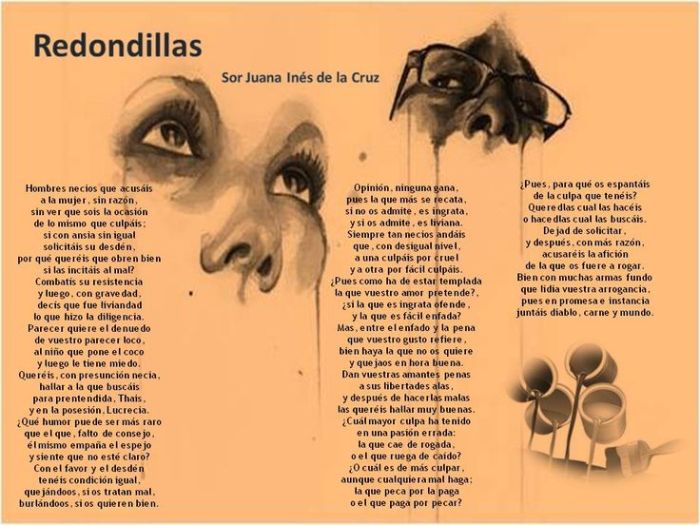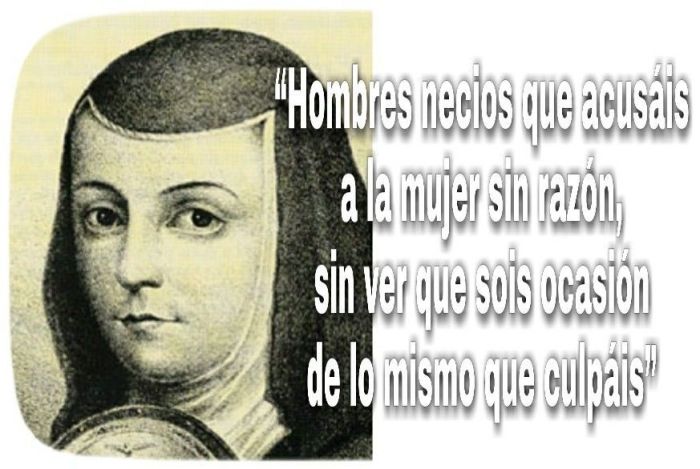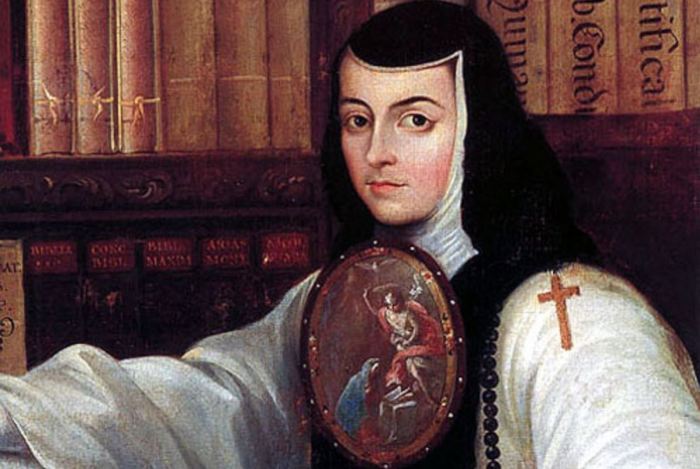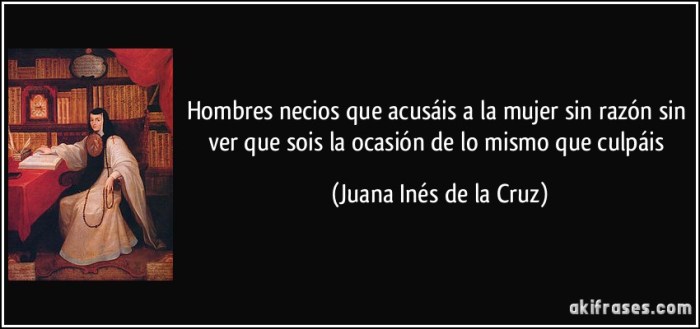Sor juana ines de la cruz hombres necios – Sor Juana Inés de la Cruz’s “Hombres Necios” is a powerful and influential poem that critiques traditional gender roles and challenges societal norms. Written in the 17th century, the poem remains relevant today, offering insights into the ongoing struggle for gender equality.
In “Hombres Necios,” Sor Juana employs satire and wit to expose the hypocrisy and double standards that govern society’s expectations of men and women. She argues that men are often praised for their intelligence and accomplishments, while women are dismissed or ridiculed for the same qualities.
Sor Juana Inés de la Cruz: A Biographical Overview

Sor Juana Inés de la Cruz (1648-1695) stands as a towering figure in Mexican and Spanish literature, renowned for her exceptional intellect, literary brilliance, and unwavering pursuit of knowledge. She was a poet, playwright, essayist, and scholar whose works transcended the confines of her time and continue to resonate with readers today.
Education and Influences
From a young age, Juana displayed an extraordinary thirst for knowledge. She received a comprehensive education, studying philosophy, theology, mathematics, and the arts. Her voracious reading and intellectual curiosity shaped her worldview and laid the foundation for her literary endeavors.
“Hombres Necios”: A Critical Analysis

Sor Juana’s poem “Hombres Necios” (Foolish Men) is a masterpiece of satire and wit. It employs a series of literary devices, including irony, sarcasm, and hyperbole, to critique the societal double standards that hindered women’s intellectual and social advancement.
Structure and Rhyme Scheme
The poem is composed of 11 stanzas, each consisting of four lines. It follows a strict rhyme scheme of ABBA, creating a sense of rhythm and flow that enhances its memorability and impact.
Feminism and Gender Roles in “Hombres Necios”
In “Hombres Necios,” Sor Juana boldly challenges the traditional gender roles that limited women’s opportunities and intellectual pursuits. She argues that women are just as capable as men of pursuing knowledge and making meaningful contributions to society.
Critique of Societal Norms, Sor juana ines de la cruz hombres necios
The poem exposes the hypocrisy and absurdity of the societal expectations that restricted women’s education and intellectual freedom. Sor Juana’s use of satire effectively highlights the double standards and prejudices that prevailed during her time.
The Influence of “Hombres Necios”

“Hombres Necios” has had a profound and lasting impact on Mexican and Latin American literature. It has inspired generations of writers and intellectuals to challenge societal norms and promote gender equality.
Literary Movements
The poem has been instrumental in shaping the development of feminist literature and has influenced literary movements such as the Enlightenment and Romanticism.
Cultural and Historical Context: Sor Juana Ines De La Cruz Hombres Necios

“Hombres Necios” reflects the social and political climate of 17th-century Mexico. It was a time of significant intellectual and cultural ferment, but also one in which women faced severe limitations in education and social participation.
Tensions and Conflicts
The poem captures the tensions and conflicts between traditional societal values and the growing desire for intellectual freedom and equality. Sor Juana’s bold critique of gender roles was a daring act of defiance in its time.
FAQ Corner
Who was Sor Juana Inés de la Cruz?
Sor Juana Inés de la Cruz was a Mexican nun, poet, playwright, and philosopher who lived in the 17th century. She is considered one of the most important figures in Spanish-language literature.
What is “Hombres Necios” about?
“Hombres Necios” is a poem that critiques traditional gender roles and challenges societal norms. Sor Juana argues that men are often praised for their intelligence and accomplishments, while women are dismissed or ridiculed for the same qualities.
Why is “Hombres Necios” considered a feminist poem?
“Hombres Necios” is considered a feminist poem because it challenges traditional gender roles and advocates for equality for women.

